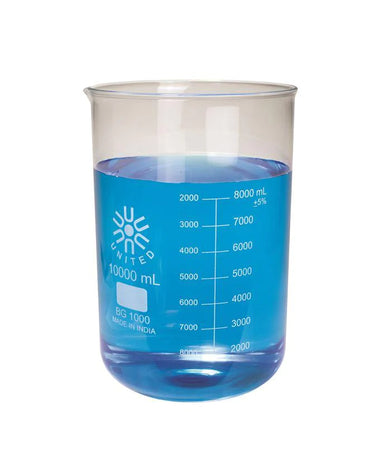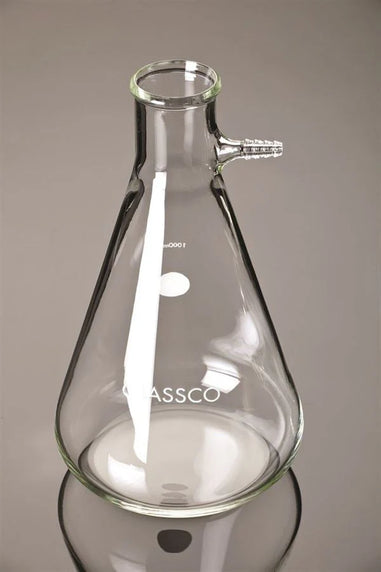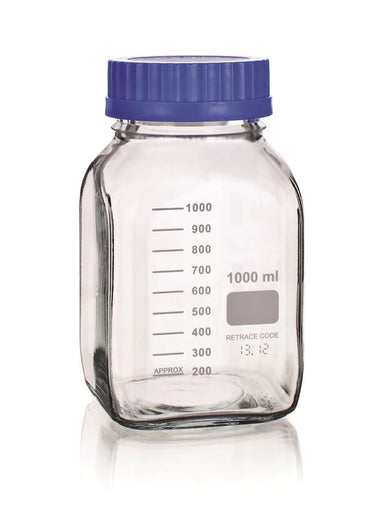- No products in the cart.
The heart of every scientific laboratory beats with precision, and the key to that precision lies in having the right tools at your disposal. Lab glassware is the unsung hero of research, enabling scientists to perform experiments, analyze samples, and ensure accurate results. Whether you're a seasoned researcher or just setting up your own lab, this comprehensive guide will walk you through the essential lab glassware you need to equip your laboratory for success.
-
Beakers: Beakers are a fundamental piece of lab glassware, available in various sizes. They are versatile and used for mixing, heating, and storing liquids.
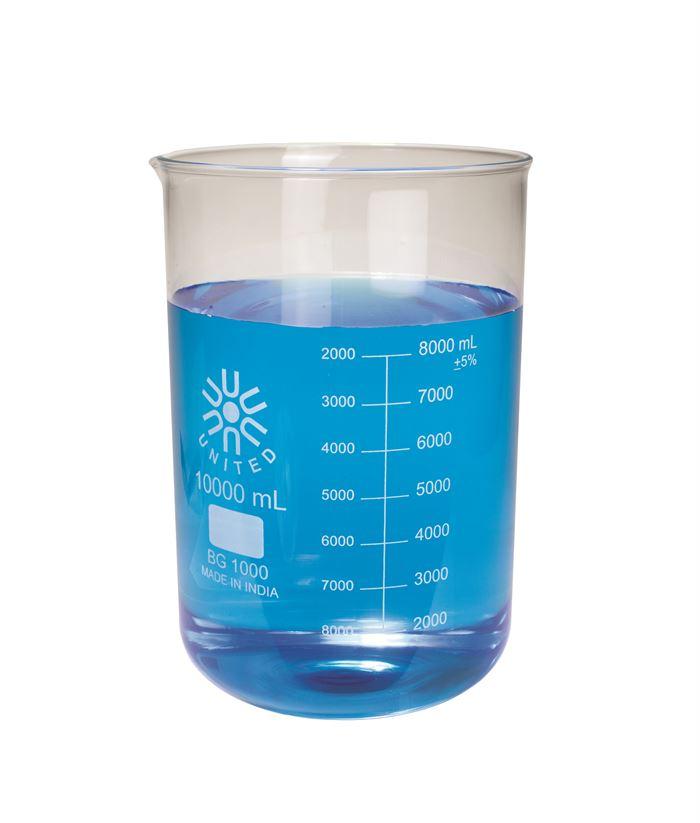
-
Flasks:
- Erlenmeyer Flask: The conical shape makes it ideal for mixing and storing liquids, especially when you need to minimize evaporation.
- Volumetric Flask: Designed for precise volume measurements, these flasks are crucial for preparing accurate solutions.
-
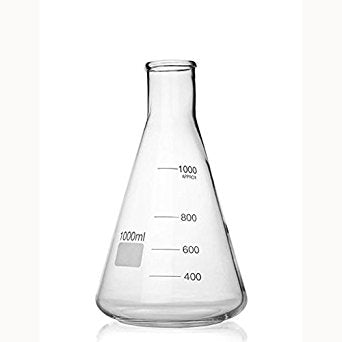
-
Test Tubes and Tubes with Stoppers:
- Test Tubes: Essential for small-scale reactions, sample storage, and observation.
- Tubes with Stoppers: These airtight containers are perfect for long-term sample preservation.
-
Pipettes and Burettes:
- Micropipettes: Used for precise liquid transfers in microliters, commonly seen in molecular biology and biochemistry labs.
- Burettes: Ideal for titrations, providing precise volume measurements of liquids.
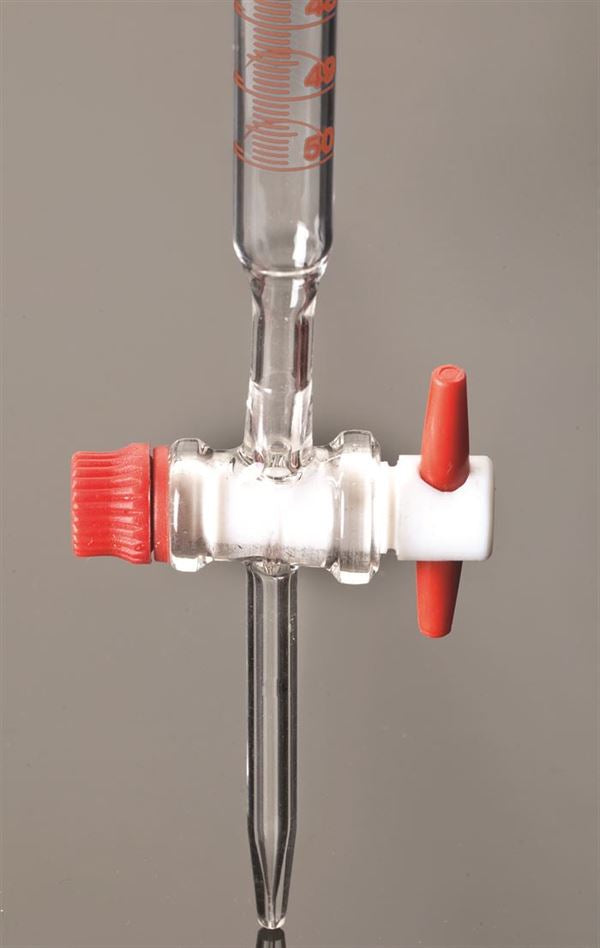
-
Graduated Cylinders: These tall, narrow containers offer accurate volume measurements and are a must-have for preparing solutions.
-
Petri Dishes: Essential for culturing microorganisms, Petri dishes come in various sizes and are an integral part of microbiology labs.
-
Desiccators: Crucial for moisture-sensitive samples, desiccators maintain a dry environment to prevent chemical reactions and changes in sample weight.
-
Condensers:
- Liebig Condenser: Used for cooling and condensing vapor in distillation setups.
- Graham Condenser: Effective for reflux reactions, where vapor needs to be condensed and returned to the reaction flask.
-
Funnel: Funnels assist in transferring liquids and powders between containers with minimal spillage.
-
Bottles and Jars:
- Reagent Bottles: Designed for chemical storage, often with a ground glass stopper for airtight sealing.
- Media Bottles: Used in biology labs for storing culture media.
- Wide-Mouth Jars: Perfect for storing bulk solids and solutions.
Building a Well-Equipped Laboratory
The specific pieces of lab glassware that you need will depend on the type of research you are doing. However, the items listed above are a good starting point for any well-equipped laboratory.
When choosing lab glassware, it is important to consider the following factors:
- The type of experiments you will be doing
- The size and shape of the glassware
- The material the glassware is made of
- The durability of the glassware
- The cost of the glassware
It is also important to make sure that the lab glassware is clean and free of contaminants. This can be done by washing the glassware with soap and water, followed by a rinse with distilled water.
Once you have chosen the necessary lab glassware, you will need to store it properly. Lab glassware should be stored in a clean, dry place. It is also a good idea to label the glassware with the type of liquid it is used for.
By following these tips, you can build a well-equipped laboratory that will meet your research needs.
Here are some additional tips for choosing and using lab glassware:
- Choose glassware that is made of borosilicate glass. This type of glass is resistant to thermal shock, which means it can withstand sudden changes in temperature.
- Avoid using chipped or cracked glassware. This can cause contamination and injuries.
- When cleaning lab glassware, use a mild soap and water solution. Do not use abrasive cleaners or solvents.
- Rinse lab glassware thoroughly with distilled water after cleaning.
- Store lab glassware in a clean, dry place.
Conclusion
A well-equipped laboratory is the cornerstone of scientific advancement. The choice of lab glassware can significantly impact the accuracy and precision of experiments and analyses. This carefully curated list of the top 10 essential lab glassware items covers a wide range of scientific applications, ensuring that your laboratory is prepared for success. Whether you're a seasoned researcher or just starting your scientific journey, these fundamental pieces of glassware are your trusted allies in the pursuit of knowledge and discovery.
For over 40 years, Lab Pro Inc. is your steadfast source for premium lab glassware equipment, cleanroom lab supplies, hand tools, lab equipment, chemicals, and PPE apparel. Trusted by aerospace industries, medical device companies, and laboratories globally, we epitomize exceptional quality in every product. Experience the convenience of next day service in California. Contact us online or at 888-452-2776 to explore solutions tailor-made for the laboratory industry. Elevate your experiments with Lab Pro Inc. – your partner in precision and excellence.



































